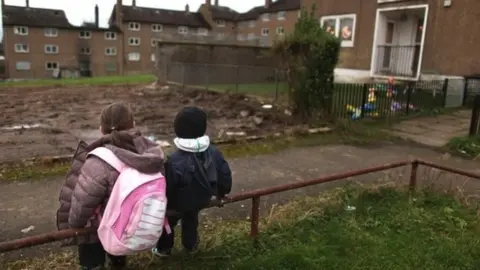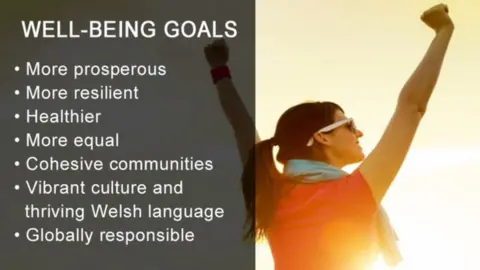Well-being progress made but challenges remain, report says
 Getty Images
Getty ImagesGood health and work prospects are improving in Wales, but inequality remains, according to the nation's first annual report on well-being.
In-work poverty and obesity were named as two of the main ongoing challenges.
Ethnic minorities were less likely feel they belonged to their local area, while women were less likely than men to say they felt safe.
Finance Secretary Mark Drakeford said the report would help the public sector make "more informed decisions".
The Well-being of Wales 2016-17 report gives an overview of progress towards the seven goals set out in the Well-being of Future Generations (Wales) Act 2015.
The act insists on more joined-up thinking by authorities to boost the prospects for all people and communities in Wales.
The annual report is intended to measure progress towards the well-being goals using a range of 46 "national indicators".

Among the findings are that while fewer people are smoking and drinking, obesity is rising.
People are more likely to be in work than ever before, but the report warns that increasing numbers are in poorly paid jobs.
Against a background of "little improvement" in earnings, the report said the gender pay gap had reduced and educational attainment was increasing.
But it added that people's prospects were still affected by their social, economic or ethnic background.
On the environment, the report said water and air quality were improving, but air pollution was still a "significant" health issue.
And while renewable energy generation was on the rise, key natural resources were being "depleted faster than they can be replenished".
Wales' chief statistician Glyn Jones said: "This is an important report bringing together a range of statistics on a wide range of topics, which I hope will become a useful benchmark over the coming years to mark our collective progress on the well-being goals."
Mr Drakeford said: "This extensive report provides information about a whole range of issues affecting Wales' economy, society, environment and culture.
"This will help the public sector make more informed decisions for current and future generations."
